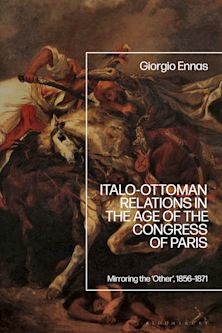- Home
- ACADEMIC
- History
- European History
- The Portuguese Revolution
The Portuguese Revolution
State and Class in the Transition to Democracy
The Portuguese Revolution
State and Class in the Transition to Democracy
This product is usually dispatched within 1 week
- Delivery and returns info
-
Free US delivery on orders $35 or over
You must sign in to add this item to your wishlist. Please sign in or create an account
Description
Building on decades of research, leading scholar Ronald H. Chilcote provides a definitive analysis of the 1974–1975 Portuguese revolution, which captured global attention and continues to resonate today. His study revisits a key historical moment to explain the revolution and its aftermath through periods of authoritarianism and resistance as well as representative and popular democracy. Exploring the intertwined themes of class, state, and hegemony, Chilcote builds a powerful framework for understanding the Portuguese case as well as contemporary political economy worldwide.
Table of Contents
Introduction
Chapter 1: Capitalism and the Bourgeois Revolution
Part I: State Forms, Enterprise, and Continuity in the Consolidation of Capitalism
Chapter 2: Origins and Evolution of the State
Chapter 3: Economic Groups, Public Enterprises, and Multinationals: Links to the State
Chapter 4: Continuity of the State in the Political Economy
Part II: Class and Movement in the Struggle for a Socialist Transition and Popular Democracy
Chapter 5: Class and Movement in the Struggle for a Socialist Transition and Popular Democracy
Chapter 6: The April 25 Coup
Chapter 7: Institutional Conflict and the MFA
Chapter 8: The New Popular and Social Movements
Chapter 9: Social Classes in Struggle
Chapter 10: Legacies of the Revolution
Chapter 11: The Aftermath
Conclusion: Assessment and Implications
Product details
| Published | Feb 16 2010 |
|---|---|
| Format | Hardback |
| Edition | 1st |
| Extent | 328 |
| ISBN | 9780742567924 |
| Imprint | Rowman & Littlefield Publishers |
| Dimensions | 9 x 6 inches |
| Publisher | Bloomsbury Publishing |
About the contributors
Reviews
-
This book interprets the Portuguese revolution of 1974–75 and emphasizes its significance as a political and economic rapture. It describes the events leading up to the coup of April 25, 1974, the coup itself, the role of the Armed Forces Movement (MFA), subsequent institutional conflict among the MFA and the political parties including the Portuguese Communist Party, and the impact of labor unions and new popular and social movements. Advancing a class theory of the state, Chilcote (Univ. of California, Riverside) argues the November 25, 1975, countercoup ended prospects for any socialist transition and ensured the state's control over the eventual consolidation of capitalism and parliamentary democracy. He believes Portugal's revolution failed for many reasons, including the country's conservative nature, its traditionally weak proletariat, and a lack of an independent workers' movement under the António Salazar/Marcelo Caetano regime. Chilcote's key argument, however, is that the continuity of the state throughout Portugal's uneven movement from authoritarianism to liberal democracy best explains the revolution's political and economic outcomes. This analysis is well grounded in extensive archival research, numerous interviews of the revolution's participants, and a careful reading of the academic literature's vast coverage of the topic. Summing Up: Recommended.
Choice Reviews
-
Ronald Chilcote’s The Portuguese Revolution is an outstanding analysis of the political economy, state formation, and emergence of capitalism in Portugal. . . . It is also a pivotal study that will generate significant comparative interest, not least because the concern with the delays and advances of bourgeois revolution in Portugal has clear import to cases of state formation across European and postcolonial contexts.
Bulletin of Latin American Research
-
[An] important new work. . . . Chilcote has not only presented a wealth of information including the debates inside and outside of Portugal on the events of 1974–75 and their impact but also a model of how to analyze the dynamics of revolutionary struggle in the context of an enduring yet changing political economy.
Rosemary Galli, author of Peoples' Spaces and State Spaces: Land and Governance in Mozambique, World Tensions
-
Ronald Chilcote's The Portuguese Revolution is an outstanding analysis of the political economy, state formation, and emergence of capitalism in Portugal. . . . A wonderful statement on class theory and the origins and evolution of the Portuguese capitalist state. It is also a pivotal study that will generate significant comparative interest, not least because the concern with the delays and advances of bourgeois revolution in Portugal has clear import to cases of state formation across European and postcolonial contexts.
Capital & Class
-
Professor Chilcote has thoroughly and meticulously researched a massive archive that he himself constructed to make an important contribution to our knowledge of the Portuguese democratic revolution and transition. Moreover, his analysis is developed within a theoretical framework that makes the work all the more interesting and challenging.
Alan Stoleroff, Instituto Superior de Ciéncias do Trabalho e da Empresa, Lisbon
-
Chilcote paints a vivid picture of a state first in formation and then in crisis, of the impact of the African wars on the traditional imperial economy and upon the army fighting them, the rise of social movements, the rebirth of civil society and the emergence of socialist and democratic ideologies. Yet, at a more profound level, he analyses the forces-the state, economic groups, and classes-that, despite the revolutionary moment, maintain control and historical continuity. This also resonates with the experience of the former colonies. The book provides students of historical change with tools for a deeper analysis and understanding not only of the Lusophone world but beyond. His proposition that the state remains decisive to capitalist development is stunningly proven by the rescue of financial capitalism in the recent global crisis.
Rosemary Galli, author of Peoples' Spaces and State Spaces: Land and Governance in Mozambique


































